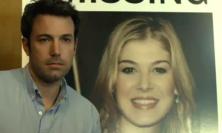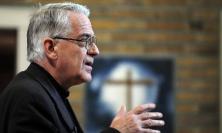James Hanvey SJ concludes his two-part series on Thinking Faith with a reflection on how our understanding of Christian Theology can offer some insight as we try to work out the values that ought to govern our use of the ever-developing media.
Theological Points of Reference
Theology may not be the most obvious context in which to expand on the issues surrounding our media-obsessed culture, yet I think it does offer a context which can deepen our search for the key values that can underpin and shape our understanding of the media and its service. In his encyclical, Redemptoris Missio, John Paul II reminds us that the role of the Christian in contemporary culture is not a passive one. Rather, “Since culture is a human creation and is therefore marked by sin, it too needs to be "healed, ennobled and perfected." (§54. also Lumen Gentium §17.) Thus, whatever the particular tools at our disposal, the Christian vocation is to use them well not only for the good but also for the healing and renewal of culture so that it may indeed be an environment which sustains and nourishes human flourishing. The media has a critical role to play in this.
At the heart of the Christian vocation is a vision of the God who comes to us, a God who is not afraid to risk his own being in entering into the world that human beings have created, even when that is a world which is hostile to him. In other words, the Christian experience of God is of a God whose very nature is communicative because it is the Good and because it is Love. Indeed, in the Divine essence these are one and therefore God, in complete and utter freedom, chooses to be a God in relation to us and defines that in the most radical way of all, the Incarnation of his Son, Jesus Christ. This is not just a passive event nor is it one that that happened in the past. It is, of its very nature, a dynamic, relational, continuously generative reality. Hence the gift of the Holy Spirit and the creation of the community, the Church, which is itself both expression and action of God’s self-communication. The Church is a communicative reality in the structures of its sacraments, its relationships and in its mission. It is and always remains a living and creative ‘communio’. Hence, wherever the Church is, it will be this ‘yeast’ in the culture and it will also be creating a culture – slowly, painfully, in weakness and failure, but a culture nevertheless that is ‘grace-filled’.
There is no end to the richness of this reality grounded in the Incarnation of Christ and what it discloses to us of the inexhaustible depth of the Divine Triune life. Yet, we can perhaps just focus on a few aspects that help us understand what this might mean for our theme of media.
· The Incarnation means that there is now an indissoluble unity between the Divine and human. The nature of this unity and its meaning cannot be grasped, indeed it will be completely distorted, if not falsified, if it is constructed or understood independently from Christ. Christ is the measure and the norm from which all our thinking must proceed. Seen in this context we recognise that it is not a relationship that belongs to us or that we can claim; rather it remains always and irrevocably gift and grace. But neither is it something that is occasional or transitory; it cannot be undone because God has chosen that it should not be undone, no matter how hard humans try to unthink it. This gracious bond is secured in the resurrection and ascension of Christ and the gift of the Holy Spirit. It is now and until the end of time an ineradicable reality of history – indeed, it is history, no matter how hard humanity tries to write its own version.
There are two consequences of this which I would identify as relevant to our present reflections and which respond to the concerns we have outlined. The first is that in the Incarnation God secures reality as His reality. That does not mean that God possesses it to the extent that he removes us. God is not an attention-seeking principal actor who claims the stage only for himself. In disclosing the very nature of the relation whereby God can uphold, redeem and confer a freedom upon that which is not God, indeed that which has set itself against God, the Incarnation gives to that which is not God, especially to the finite human creature, a secure being. It is part of the ‘admirabile commercium’, that ‘wonderful exchange’, that God who is beyond all being secures being and upholds it. This must mean that no matter how obscurely we perceive it and live it, God rescues reality – the truth and its possibility – from the illusion and manipulation and the strategies of deception (conscious and unconscious) that mark the human struggle and will to domination, epistemological as well as political and social. In other words, God in Christ is our reality check, the one to whom we are accountable, the Truth which measures all our truth(s). Yet this is not an imposition. Because it is a genuine relationship, we are made participators and ‘co-workers’ in the truth. In this sense, we have a deeper responsibility to be doers and artisans of the truth, the servants of reality. So, we are involved in a constructive exercise of constantly incarnating the truth in our lives and in our work and that, too, is our search.
The other aspect of this is that Christ ‘reveals man to himself and makes his supreme calling clear.’ (Gaudium et Spes § 22). In the context of our reflection on the media and its impact on defining what it is to be human, in social relations and in self-expression, Christ again becomes the measure. We are not self-constructing in the sense that we invent ourselves. At first this can seem like an imposition or restriction upon our autonomy. Yet, to know who we are and what we are called to be, to grasp that human dignity and value is not an arbitrary quality depending on the state or personal status or capacity, is the greatest liberation. Again, that opens up the possibility of our responsibility to each other from which also flows the integrity of our relationships professionally and personally. In other words, part of the work of media is to discern, no matter how disfigured the circumstances, the true face of the human. In doing so, there is a redemptive quality and, whether we have faith or not, we contribute to the healing of society and its present and future good. It is often a hidden service but no less significant for that, because it is an essential resistance to all the strategies of oppression and tyranny that necessarily rely upon the distortion of truth and the erosion of the ontological status of the human person.
· The very fact that the Incarnation in all its concreteness of the person of Christ is planted before us and before the whole of human history opens up another dimension of relationship. It means that we are not abandoned to ourselves. This is part of the Gospel of Hope. Part of the 'convenient lie' is that we are alone ‘upon the darkling plane’ and must make of things the best we can. There is a deep and corrosive nihilism which helps to fuel a sense of human omnipotence and freedom from judgement on the one hand, and despair on the other. Yet the advent of Christ is the final revelation of the Name of God and the completion of the covenant on Sinai: Immanuel – God with us. In this, God reveals that we are not abandoned but called out of the darkness of despair, ‘the valley of death’, and summoned to a new fellowship with God and each other. In Christ, God breaks through our solipsism and narcissism and opens up the reality of the ‘other’ – yes, we are our brother’s keeper and our sister’s keeper - and so the ancient sin of murder (in all its dimensions) is healed. Imagine for a moment, a media which lived by this vision and experience. Such a media would open up that space for us and allow us to see beyond our own fears and fantasies the face of the other. It would then become the real mediation of communication and freedom.
· The third consideration flows from these two and builds upon them. In the Incarnation, God shows himself to be the keeper of the memory of who we are. This, again, is the truth by which we can always take our mark and orientation no matter how lost or confused we may become. It is the memory, planted deep within our culture, of the sacredness, value and dignity of the person – every person – and their inestimable worth irrespective of their condition. In this sense, too, it is the memory of our vocation – the purpose of our existence which gives us a real creative freedom in following and realising that call. More even than this, it bestows upon us the duty and responsibility of helping others realise their value because we cannot deny that we know them or see them. In other words, in keeping the memory of what it is to be human, Christ never lets us fade into oblivion or be degraded into some instrumentalising social or political agenda. A media which is at the service of the truth is at the service of humanity and it will always be a genuine ‘anamnesis’ in a culture which cultivates the danger of forgetfulness – it will always be a point of resistance and subversion. It will also have to pay the price of its witness.
I hope I have been able to indicate the ways in which theology can open up and secure the fundamental values that belong to the Christian life, a life which is at the service of God and the humanity which he has chosen. It means that the fundamental task of the media – which is after all a human work and activity – is simply to use well and for the good the gifts that it has been given. It does not necessarily have to proclaim its Christian inspiration or sense of responsibility, but it will have the quiet confidence that a well-grounded theology can bring. As such, it will always have a sense of the deeper community of humanity, the value of a genuine solidarity, that it will express and support. In the Catholic sacrament of Baptism the rite includes an option of performing the ‘ephatha’ – 'be opened' (Mark:7.34). Here, the priest, in imitation of Christ, touches the mouth and the ears of the new born child and prays that they will be opened to proclaim the Gospel of Christ and hear its good news, hear too his call and speak his words of consolation. I suggest that this is the deepest reality and mission of communication: to be open to God’s communication and to be open to communicating it. It is also the gift of setting free and enlivening that which was deaf and dumb. In its own unique way, is that not the calling of every one who works in the arts and sciences of communication?
Finally, I would like to identify some orientations. They obviously represent values, but I think perhaps they are best seen as dispositions for working and creating.
I do not think that either the values or the ethical questions that are present in the media are significantly different from those in any other walk of life. They will be directed not just by the constraints of the moment or by our perception of personal gains, however we might assess them. Every work entails choices, and choices mean that in some way we are operating with values. At this level, too, our decisions are in some way a self-expression and a self-making – what I have called elsewhere a ‘poiesis’[1]– which begin to shape a moral and aesthetic existence. Our choices, especially over time, reveal us and they also create for us the structures within which we come to live, the history that we carry and the future we seek. I have tried to indicate the way in which our choices can be shaped by faith in Christ who is our ‘master carpenter’ in the work of making a life, especially a life lived with and for others. So what might be some of the central markers we might have for our work – the deep work of becoming through grace – of which the media is part of the means?
1: With regard to truth, I suggest it is not only a question of seeking it and having both the art and the courage of trying to express it. There is, too, the desire to honour its complexity and all its different levels. We do not do a great service to ourselves or to our society if we distort through some misplaced idea that simplicity is best. It is often the easiest and it is frequently the most distorting choice. The reality is that even the most banal aspects of human life are complex and multi-layered. Human beings do not exist on one plane or in one dimension. If we present them and the truth about them in this way then we traduce reality. We also fail in one of the most vital ways to educate – to educate ourselves in how to live with the truth as complexity and therefore in how to live our own lives. There is real skill in achieving a complexity which does not obscure or hide but which illuminates. All great and lasting art and thought is marked by this and even when our work is more humble and transitory we can still aim for a wholesome complexity which honours the truth. The work itself may be transitory but the values which it expresses, imparts and sustains are not.
2: It will be clear from all I have said, that a vision of the human person in their intrinsic value, dignity and purpose is central to anything which genuinely seeks to be of lasting value. I believe there is an urgent need for this vision in a culture which is forgetting what it is to be human and is confused about the status of the human person from the beginning of his or her life to its end. If all the work of the media expresses a responsibility to what is human and a vision of the human person, then I think we have rendered a powerful and necessary service to every member of society and to society itself. This is part of our necessary unmasking of the reductionism and instrumentalisation which often masquerade as the increase of individual autonomy but actually result in the commodification, manipulation and disposability of the person.
3: Grace. This flows from 1 and 2. I am suggesting that in the way in which it represents the complexity and reality of human lives and circumstances, the media needs also to be open to those moments of transcendence within the banal and mundane, within the pain and destruction. These are the apertures of transcendence that are present in every life and when we touch them they become apertures for us as well. Education in this atunement is vital for the nourishing and flourishing of our lives. Without it, we remain in a desert of spiritual and psychological impoverishment, for all the stimulation and distraction that is provided. In fact, the paradox remains that for all their ingenuity and energy, if such activities have no sensibility for the ‘the bright field’ they become a strange narcotic for the spirit.[2] We are distracted by the insistent demand but left depleted, empty and starved. In these apertures we sense that we are in the presence of something larger; that the domestic world of our concerns and struggle for survival is neither a barrier nor all that there is. Even within such little spaces there is a mystery that waits upon us and waits for us.
4: Integrity and generosity seem to be essential for any work no matter how routine or trivial it may appear. Integrity comes from the vision that we have been exploring and the commitments our Christian faith asks us to make to the world in which we live and the truth that we have received. Integrity is not only something that we possess; it is something that has to be made from the stuff of our lives and the circumstances in which we find ourselves. It is deciding, every day, to be and act this way and not that; to live by these values and not those; to create this sort of work – or not to create it if the price is too high or the good is impaired. But above all we see in God an astonishing and inexhaustible generosity and surely it is this which comes to characterise our own lives if we seek to live by his grace. That generosity is simply the desire to give and to be of service. It is a determination not to diminish or constrict or withhold. It comes to express itself in the quality of our work and our professional standards. It is the decision that, whatever work we produce, it will not diminish the subject, those who participate in it nor those who receive it. These works will always leave us feeling more human, not less, even though they may ask us to face some grim truths and bleak realities. They will be moral in the deepest and most natural way because through their commitment, exuberance and generosity they will demonstrate how to value and not devalue.
I think all these reflections are well summed up by the Pontifical Council for Communication,
Serving the human person, building up human community grounded in solidarity and justice and love and speaking the truth about human life and its fulfilment in God were, are and will remain at the heart of ethics in the media.” (Ethics in Communication, § 33, Pontifical Council for Social Communications, 2000)
James Hanvey SJ is Director of The Heythrop Institute for Religion, Ethics and Public Life.
This article is adapted from a presentation to the 2008 Churches’ Media Council Conference.
[1] Cf. On The Way To Life , London, CES 2005, J Hanvey SJ and A Carroll SJ, The Heythrop Institute for Religion, Ethics and Public Life, pp 61-62.
[2] The Bright Field, R. S. Thomas






